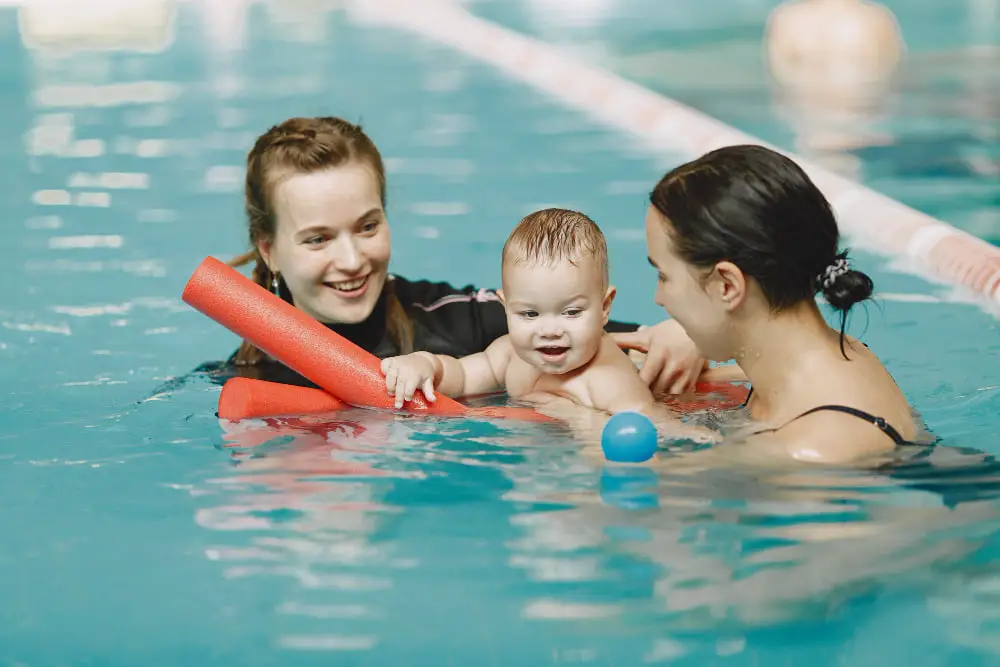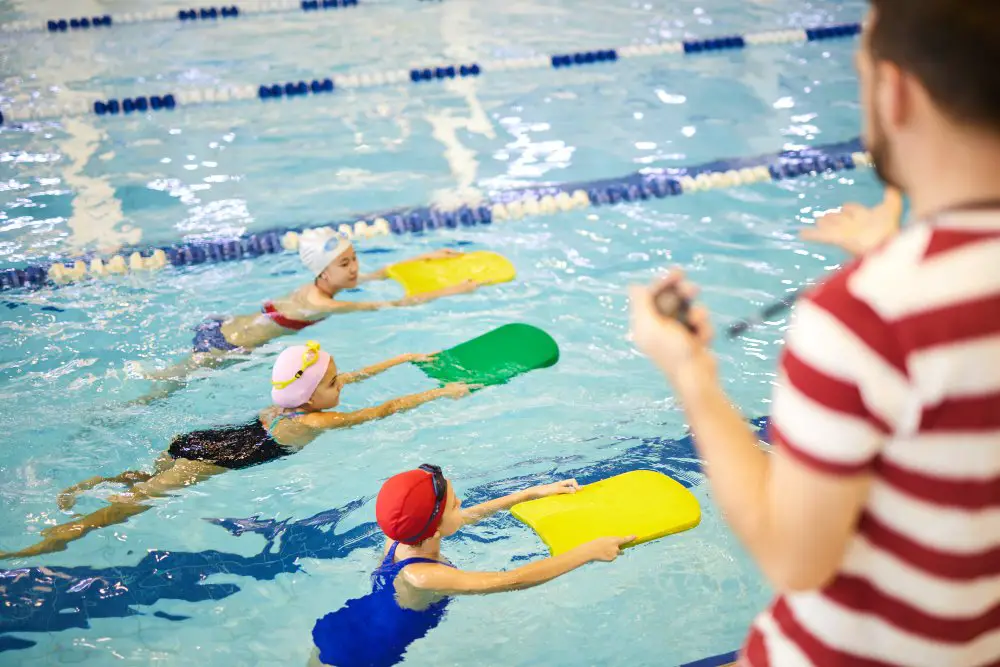Last updated on
Swimming is often regarded as one of the most valuable life skills one can acquire. Beyond its recreational aspects, swimming offers numerous physical, mental, and developmental benefits, especially when introduced at a young age. Early exposure to swimming classes instills water safety and fosters holistic growth in children. This article explores the myriad benefits of starting swimming classes early and why it’s a decision that can profoundly impact a child’s life.
Water Safety

Perhaps the most critical benefit of starting swimming classes early is the emphasis on water safety. Early swimming lessons significantly reduce this risk. Learning to swim at a young age equips children with essential water survival skills, such as floating, treading water, and basic strokes, reducing the likelihood of accidents in and around water bodies.
Enroll your kids in swim classes to ensure they develop the skills to stay safe in and around water. These classes provide structured instruction on fundamental water safety techniques, including proper breathing, floating, and recognizing hazards in aquatic environments. In this case, explore online and go to britishswimschool.com, for example, to gain insights into the various programs and offerings available.
British Swim School’s curriculum is designed to cater to children of all ages and abilities. This ensures that every participant receives personalized attention and progresses at their own pace. Many swim schools offer comprehensive programs tailored to different age groups and skill levels. This ensures children receive appropriate instruction and support based on their needs.
Physical Development
Swimming is a full-body workout that engages nearly every muscle group, making it an excellent exercise for children. From improving cardiovascular health to building strength and flexibility, regular swimming sessions contribute to overall physical development.
Starting swimming classes early lays the foundation for healthy habits and promotes an active lifestyle from a young age, reducing the risk of childhood obesity and related health issues. Furthermore, the low-impact nature of swimming minimizes the risk of injury, allowing children to enjoy consistent physical activity without strain on their developing bodies.
Cognitive Benefits

Swimming isn’t just about physical prowess; it also offers significant cognitive benefits, particularly for young learners. Research suggests swimming stimulates brain development, enhancing mental function, problem-solving skills, and spatial awareness.
The complex coordination required in swimming strokes promotes neural connections, which can have long-term cognitive advantages for children. Moreover, the rhythmic nature of swimming encourages focus and concentration, improving mental abilities both in and out of the water.
Confidence and Independence
Mastering swimming strokes and overcoming challenges in the water instills a sense of confidence and independence in children. Early exposure to swimming classes helps build self-esteem as children conquer their fears and accomplish goals in a supportive environment.
Additionally, swimming promotes a sense of independence as children learn to navigate the water safely, fostering a mindset of resilience and self-reliance. As children gain proficiency in swimming, they become more self-assured in their abilities, translating into greater confidence and autonomy in other areas of their lives.
Social Interaction
Swimming classes provide valuable opportunities for social interaction and peer bonding. Group lessons allow children to make friends, collaborate, and develop essential social skills such as communication and teamwork.
Moreover, participating in swim meets or team events fosters a sense of camaraderie and sportsmanship, teaching children the importance of cooperation and healthy competition. In this supportive environment, children hone their swimming abilities and cultivate lifelong friendships and a sense of belonging within the swimming community.
Stress Relief and Mental Well-being
Introducing children to swimming at an early age cultivates a lifelong love for the water. Whether swimming laps for exercise, enjoying recreational water activities, or simply relaxing by the pool, individuals who start swimming early often carry their affinity for swimming into adulthood.
This enduring passion for swimming promotes physical fitness and provides a source of joy, relaxation, and recreation throughout life. Swimming is known for its therapeutic effects on mental well-being. The rhythmic movement of swimming, combined with the soothing properties of water, helps reduce stress, anxiety, and tension in children.
Swimming releases endorphins, the body’s natural mood enhancers, promoting relaxation and a sense of tranquility. Starting swimming classes early introduces children to a valuable coping mechanism for managing stress and maintaining mental balance.
Starting swimming classes early offers many benefits that extend far beyond the poolside. From enhancing water safety and physical development to promoting cognitive skills and mental well-being, swimming provides a holistic approach to child development.
By introducing children to swimming at an early age, parents and caregivers empower them with essential life skills, instill confidence, and lay the groundwork for a lifetime of enjoyment and well-being. Investing in early swimming education is not just a choice; it’s a gift that can profoundly impact a child’s present and future.
Recap




